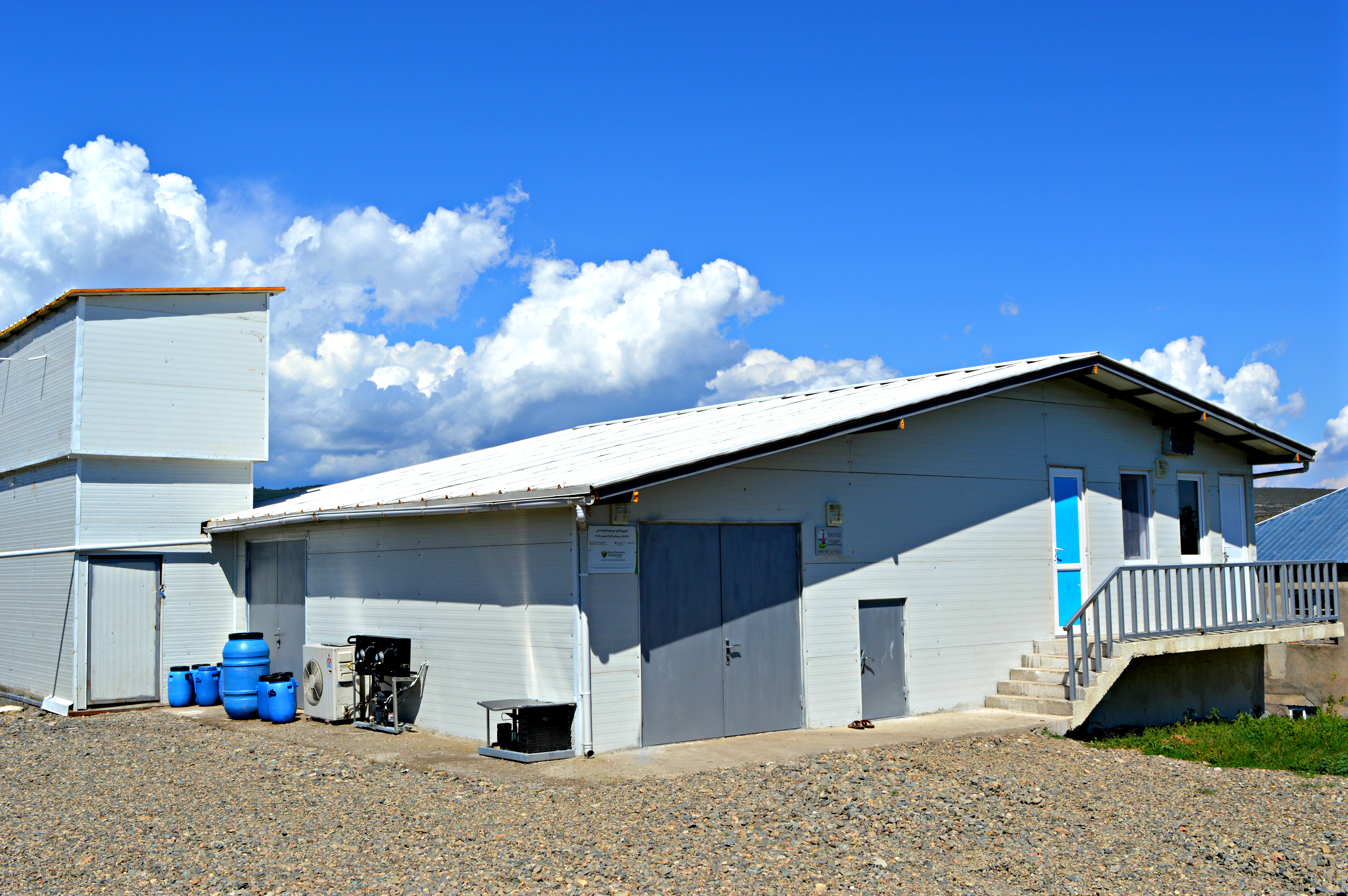Every morning has started differently for three women in Disveli village, Bolnisi Municipality, since April 2016. At 9 am sharp they start their daily job at a small cheese enterprise located in the village to produce Sulguni, butter, and a ricotta-like dairy product from local cattle milk. The morning starts by getting fresh milk from various farms, which is later put into a pasteuriser. After cooling down, it undergoes a ripening process, which takes at least 30-40 minutes. When the cheese is ready, it is simultaneously boiled and stretched and later kneaded into a round-shaped Sulguni.
Disveli is a village of ecomigrants from Adjara who were resettled due to a landslide that destroyed their homes in Khulo Municipality. Building the cheese cooperative in Disveli is the result of a partnership between CENN and Rural Economic Development Program (RED) for the Southern Regions of Georgia – a joint Danish-Swiss project that aims to contribute to the economic growth of the agriculture sector and reduction of poverty in Samtskhe-Javakheti and Kvemo Kartli regions. CENN’s involvement in the establishment of the women cooperative and enterprise was possible in the framework of the Austrian Development Cooperation (ADC) funded the project, Empowered Rural Women for Sustainable Agriculture in the South Caucasus, which is implemented in a partnership with Hilfswerk Austria International and Green Lane Agricultural Assistance NGO in Armenia.
The project aims to reduce poverty in the transboundary region of Armenia and Georgia via contributing to the empowerment of women and to increase their awareness of the importance of sustainable agriculture in the South Caucasus. Consequently, one of the cooperative’s principles was gender equality, meaning that at least half of its members should be female. This empowers rural women, ensures their income, and generally improves the living conditions of the vulnerable rural population. In addition, the cooperative also assumes social responsibility for its community and invests part of the cooperative’s income into a community fund that targets its development projects.
Meri Makharadze, the Chairwomen of the cooperative, explains that the existence of such cooperatives and enterprises in the village is necessary as the village will have some novelty and innovation. ‘A person can learn a lot of things as the project brought so many international experts, who taught us the production of various cheese types with different technologies’ she continued.
Another woman involved in the cooperative and cheese production is Zaira Shainidze, who has much more experience in cheese production than others. She has worked for at least 5 years in different companies and factories. Zaira notes that she has never worked in any enterprise with such technologically advanced equipment.
‘Working is much easier, than with the traditional Adjaran method, which involves bigger bowls and bare hands’ she continues adding that being in the enterprise is beneficial for her as she has her own income and can help her family.
Currently, the cheese produced in Disveli is sold in Tbilisi in low quantities, while the butter and ricotta, while being in high demand, are only sold on the Disveli village market. Members of the cooperative hope to become more efficient, and extend production and most importantly the labour force quite soon. The problem they currently face is that they do not have a vehicle to bring milk from cattle that taken to the mountains to pasture during the summer. In addition, the cooperative is working on recommendations received from the National Food Agency in order to introduce a HACCP plan in the factory and to start mass production.
According to Makharadze, the enterprise is able to get 2.5 tonnes of milk every day and fully utilise it. She explains that 100 litres of milk give around 12–13 kg of cheese, while on average they get at least 300–400 litres each day. Shainidze elaborates that once they begin mass distribution, the enterprise will be able to an employee at least 10 people for cheese production, but this is not the only work at the factory, as there is also the daily cleaning of premises and equipment.
To raise awareness of the enterprise, cooperative members participated in various national and international agricultural and cheese festivals such as the Georgian Cheese Festival in 2014, the Festival of Rural Life in Yerevan in 2014 and 2015, and the South Caucasus Cheese Festival in Tbilisi in 2015. Last year in Yerevan, the Disveli cooperative was even awarded the Best Enterprise Award.
